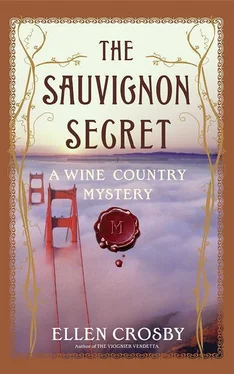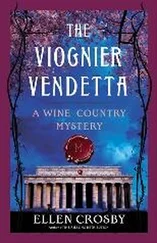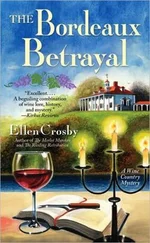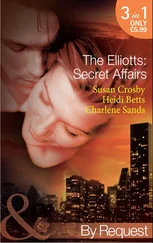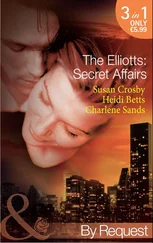“See if who’s available? Did you already call? You did, didn’t you? What happened?”
He shrugged, looking sheepish. “I might have tried to pry some information out of them. It’s possible I kind of pissed off one half of O’Hara and Romano Estate Agents.”
“Oh, brother. The old Santori charm.” I pulled out my phone. “Got a phone number?”
He handed me his wallet. “On that folded piece of paper. Why don’t you ask for O’Hara?”
“Why don’t you let me make the call and stop micromanaging?”
Connor O’Hara had a gentle Irish lilt and an opening in his schedule for one thirty. We agreed to meet at the bank.
“You didn’t even have to work for that.” Quinn parked in front of the restaurant, sounding disappointed. “My luck, I got the hard-assed partner. You got the pushover.”
“Says you. Or maybe I’m just naturally charming. Unlike some people.”
The sand-colored Miramar was a comfortable, rambling old place with a long row of picture windows that looked out on the rocky coastline and the Pacific a few feet away. Inside, a gray-haired pianist with a ponytail played Broadway show tunes near the bar, and the restaurant bustled with the business of a lunchtime crowd. A hostess seated us by an ocean-view window and left oversized menus.
“This place is wonderful,” I said. “And if that was your idea of flirting with the hostess to show me up for what I said about your lack of charm, she looked like she thought you had some weird eye tic.”
Quinn pulled his sunglasses down off his head and put them on. The sun, streaming through the window, was so dazzlingly bright that I did the same. I could see my reflection in his.
“She was being discreet,” he said. “I think she likes me.”
“Give the waitress a big tip and keep the glasses on. Then they’ll all like you.”
A cute redhead showed up with a water pitcher and breadbasket and told us about the specials. I chose Seafood Louie with more Dungeness crab; Quinn took the fish and chips. We both decided to have sweet iced tea.
“This used to be a Prohibition roadhouse,” Quinn said after she left. “Half Moon Bay was a great place for rumrunners to bring their illegal hooch ashore. The, uh, bordello was upstairs.”
“Bordello?”
“Yup. Don’t look like that. It’s not a bordello now.”
“I kind of figured,” I said. “And I was just free-associating when you said ‘bordello.’ Made me think of Allen Cantor.”
“What about him?”
“Not him exactly, what he said about Teddy Fargo. We’re no nearer to knowing if he’s Theo Graf,” I said. “And if he is, it sounds like the reason he’s on the lam is his little drug business. Which has nothing to do with the Mandrake Society and the deaths of Mel Racine and Paul Noble.”
Quinn shrugged. “So end of story. You can still ask Brookie about the black roses, if you want to. But the drug dealing—selling and cultivating marijuana is a felony in California—is a lot more credible explanation for why the guy took off than Charles’s cock-eyed idea about a forty-year-old vendetta.”
Brookie. Allen said she’d had a mad crush on Quinn and that she was a knockout. I stifled envious feelings and said, “Then tell me why two members of the Mandrake Society died with those wine-glasses next to their bodies within a couple of weeks of each other.”
“Coincidence?” he said. “Maybe they were as haunted by those deaths as Thiessman is. Racine was in his sixties, Charles said. That’s not old, but he wasn’t a spring chicken, either. As for Paul, who knows what demons tormented him that made him decide suicide was a better option than sticking around?”
“It’s possible, I suppose. I don’t know,” I said as our waitress set down our seafood. “Right now I’m totally confused.”
I bent my head and dug into my Seafood Louie. The timing of Charles’s request and the deaths of Mel Racine and Paul Noble bothered me. After so many years of silence, why should what happened to Stephen Falcone and Maggie Hilliard rise up out of the past all of a sudden? Charles thought Theo was behind all this, but who or what had provoked Theo? That is, if he was still alive and living under an alias as Teddy Fargo.
Someone else must have surfaced and vanished like a ghost.
But who was it?
Mel Racine’s bank, which he’d transformed into wine storage for serious collectors needing a safe place to store their priceless bottles, was on Main Street in the historic district of Half Moon Bay. I fell in love with the romantic Spanish Mission Revival building the minute I laid eyes on it. It looked like classic early California architecture with its putty-colored stucco walls, orange tile roof, and arched wooden front doors decorated with filigreed ironwork and surrounded by brightly painted ceramic tiles.
Connor O’Hara stood under the eaves in front of the massive doors, talking into his cell phone as Quinn and I parked next to a black Mercedes sporting a license plate with a realtor’s logo. He was of medium height with bright red hair sticking out from under a flat tweed cap, trimmed beard, dark trousers, white dress shirt with the sleeves rolled up, and a tailored linen vest.
His eyes went to the Porsche first. Then he took stock of the two of us as we walked toward the bank, slowly focusing on me as he registered my unabashed appreciation of the elegant old building.
He shook hands with Quinn, then me. “I’m Con O’Hara. Mr. Santori, Ms. Montgomery. Welcome to the Wine Vault. We’ve had a lot of interest in this place, don’t you know? I’m sure we’ll be havin’ a contract on it any day now.”
I liked the lilt in his voice. He’d already checked my hand for a wedding ring. Probably trying to figure out if this was a business deal between two partners or which one of us was the potential buyer.
“It’s still on the market, though, right?” Quinn asked.
“Oh, sure, sure.” O’Hara pulled a round metal ring with what looked like old-fashioned jailers’ keys on it and a smaller ring with half a dozen modern keys from his pocket. “This one’s a wee bit special. A historic building datin’ back to the early 1900s. Not often something as fine as this comes available.”
“I suppose that explains why the seller is asking so much more than the assessed value of the property?” Quinn asked.
I pretended to study the patterns in the glazed ceramic tile. We were supposed to be casual lookers, not acting like we might actually purchase the place.
“I believe we’ll get it.” O’Hara unlocked the front door with one of the jail keys. I felt a rush of cool air like the building had been holding its breath.
If potential buyers had besieged Mel Racine’s bank, they must have floated through here on a magic carpet. Dust motes hung suspended like fine silt in the dim sunlight filtering through two small, high windows. Shadows cast by the grillwork made a graceful design on the marble floor. I brushed my fingers across the back of a saddle-colored leather sofa that had been pulled up to a glass coffee table and felt grit.
“The former owner used the upstairs as a gathering place to host wine tastings and the like,” O’Hara said. “Set up a small kitchenette in the back and turned the counter where folks did their banking into a bar. He liked to feature a different wine at each of the tellers’ windows. Clever, wasn’t it?”
Quinn nodded, hands behind his back, as he wandered around the large room, peering behind the counter to check out the kitchenette setup. A moment later, O’Hara and I heard the ding of a cash register drawer popping open next to one of the tellers’ windows.
“He loves toys,” I said to O’Hara. “He’s just a kid at heart.”
Читать дальше
